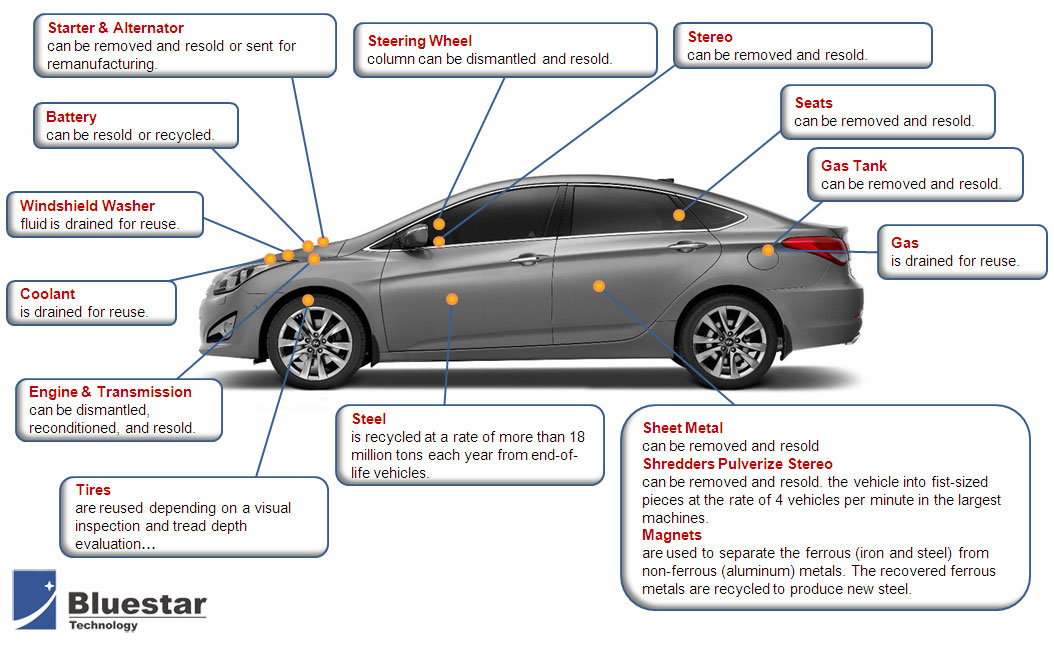An automotive recycling report that details the growing opportunities for recycled plastics in car has been realeased by The Plastics Industry Trade Assosication (SPI).
The report named “Automotive Recycling: Devalued is now Revalued” was issued at Re|focus Recycling Summit & Expo, held April 25-27, in Orlando, Florida. This report highlights innovative uses of recycled content, achievements in zero waste in manufacturing and promotes increased recycling of automobile plastic parts. Automotive recycling is leading other industries, with 95 percent of automobiles recycled at the end of their practical life, according to the report.

The recycling of plastic materials in automobiles, however, is in its infancy. SPI says this new report aims to increase communications and cross-collaboration to identify hurdles and solutions to achieving increased recycling by working with the full supply chain—from resin suppliers and equipment manufacturers to processors, brand owners and recyclers.
The opportunities for recycled plastics in cars are abundant, SPI says. Each year in the U.S., approximately 12-15 million vehicles are scrapped with an increasing amount of those vehicles comprised of more plastic components and parts. Recycling of postindustrial plastics from cars is already happening at automotive plants, as manufacturers have become leaders in managing their scrap to reduce waste, SPI says. Increasingly, automotive companies are using postindustrial, and postconsumer recycled material throughout their vehicles.
“There is an opportunity for recycled plastics in the automotive sector, and we are hoping to merge key learnings from all members of the supply chain together to learn how we can best promote and grow plastics recycling in the automotive industry,” says Kim Holmes, SPI’s senior director of recycling and diversion.
First, the Zero Net Waste (ZNW) recognition program assists the plastics industry in managing waste in manufacturing by offering specific tools to evaluate waste reduction opportunities and maximize landfill diversion.
Second, in a separate recovery effort, SPI members have begun a collaborative research project to explore the viability of collecting and recycling auto plastics from end-of-life vehicles and build a basic recovery model for whole parts before shredding. The review will help determine the feasibility of recovery today pared against material performance and demand for recycled thermoplastic olefins (TPO) and polypropylene (PP). If successful, this project will serve as a launching point to explore the opportunity to recover additional plastics, both through whole-parts recovery and eventually auto shredder residue (ASR).

(According to Recycling Today)